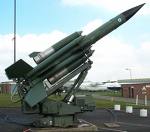Thursday
May212009
Text: The EastWest Institute (US-Russian) Report on "Iran's Nuclear and Missile Potential"
 Thursday, May 21, 2009 at 10:20
Thursday, May 21, 2009 at 10:20  For more than a year, US and Russian scientists and other experts supported by The EastWest Institute have been studying US-Russian relations and Iran's weapons programmes. Their report, released this week, recommends the suspension of plans for missile defence and pursuit of a diplomatic route, both in the United Nations and directly with Iran, on the nuclear issue.
For more than a year, US and Russian scientists and other experts supported by The EastWest Institute have been studying US-Russian relations and Iran's weapons programmes. Their report, released this week, recommends the suspension of plans for missile defence and pursuit of a diplomatic route, both in the United Nations and directly with Iran, on the nuclear issue.Recommendations
5.10 This report has concluded that there is at present no IRBM/ICBM [intermediate-range/inter-continental ballistic missile] threat from Iran and that such a threat, even if it were to emerge, is not imminent. Moreover, if such a threat were forthcoming, the proposed European missile defenses would not provide a dependable defense against it. It does not make sense, therefore, to proceed with deployment of the European missile defense system in Poland and the Czech Republic.
5.11 The more immediate danger comes from the military and political consequences that would follow if Iran were to acquire nuclear weapons and the capacity to deliver them against targets in the Middle East. The urgent task, therefore, is for Russia and the United States (and other states) to work closely together to seek, by diplomatic and political means, a resolution of the crisis surrounding the Iranian nuclear program. Such cooperation could be helped if the issue of European
missile defense were set aside.
5.12 If deployment of the European missile defense system were suspended, the United States and Russia could
explore in a serious fashion the possibility of cooperation in ballistic missile defense, an issue also mentioned in
the joint statement of the two presidents. A wide range of options could be explored, including the possibility
of boost-phase missile defense. (See the Technical Addendum for a detailed discussion.)
5.13 There is scope for U.S.-Russian cooperation in thefollowing areas:
a. Ensuring that the sanctions the Security Council has imposed on Iran are implemented strictly;
b. Strengthening the nuclear nonproliferation regime, and in particular the IAEA’s capacity to implement safeguards and enhance its verification procedures;
c. Strengthening the MTCR [Missile Technology Control Regime] in order to restrict further the export of sensitive missile technologies;
d. Persuading Iran, by diplomatic means, to adopt measures that will reassure its neighbors (and the international community more generally) that its nuclear program is directed solely toward peaceful purposes.
e. Exploring the responses the two countries could take if Iran should expel the IAEA inspectors; and studying other paths by which Iran might seek to “break out” as a nuclear power and devising appropriate responses.
f. Investigating seriously the possibility of cooperation in missile defense.
5.14 The issues dealt with in this report — the potential nuclear-missile challenge from Iran and the role of missile defense in meeting that challenge — have in the past served to worsen U.S.-Russian relations. The analysis given in this paper points to a diff erent possibility: that cooperation between the two countries could help to resolve these important and urgent issues and could play a role in changing the U.S.-Russian relationship for the better.

Reader Comments